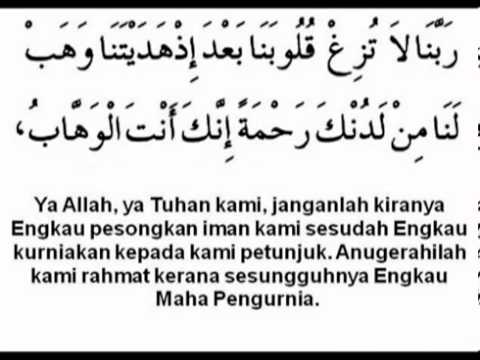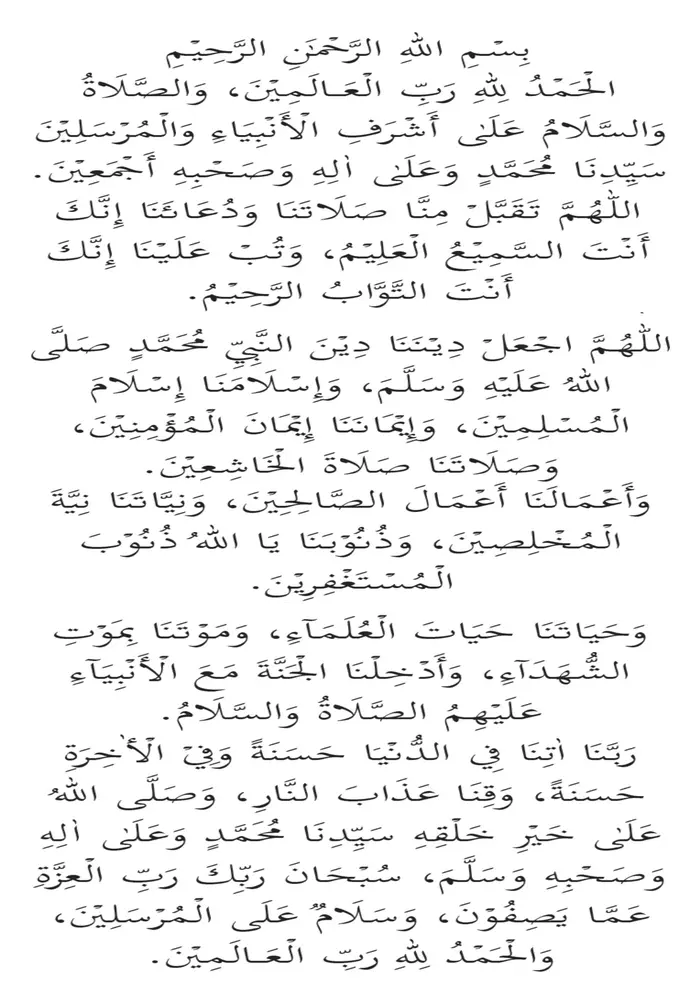Do you know the power of the supplications (doa) recited after your prayers (solat)? Far from being a mere formality, these post-prayer duas are a potent opportunity to connect directly with Allah SWT, expressing gratitude, seeking forgiveness, and making heartfelt requests. This post will explore the significance of doa selepas solat, offering insights into its spiritual benefits and providing examples of powerful supplications you can incorporate into your daily practice.
Beautiful Doa Selepas Solat Fardhu Individu 9+
For those aged nine and above, the doa selepas solat fardhu (supplication after obligatory prayers) takes on a more mature and comprehensive form. Instead of relying solely on memorized short supplications, older children can begin to understand and personalize their prayers, expressing gratitude for specific blessings and seeking guidance and protection from Allah SWT. This can involve incorporating elements from established doa collections while also adding their own heartfelt requests, fostering a deeper connection with their faith and cultivating a habit of sincere reflection after each prayer. The emphasis should remain on sincerity and understanding the meaning of the words spoken, rather than rote memorization alone.

Photo credit: i.ytimg.com
kumpulandoaharianramadhan.netlify.app
Doa Nabi Selepas Solat Contoh Doa Selepas Solat Yang Anda Boleh
This blog post explores the importance of *doa* (supplication) after prayer (solat) in Islam. One example of a supplication you can recite after completing your prayers is the *Doa Nabi* (Prophet’s supplication). While there isn’t one single, universally accepted “Doa Nabi selepas solat,” many Muslims utilize various supplications attributed to the Prophet Muhammad (peace be upon him). These often include expressions of gratitude to Allah, seeking His forgiveness, and asking for His blessings in this life and the hereafter. Finding and reciting these supplications, even short ones, strengthens your connection with Allah and completes the act of worship. Numerous resources, including books and websites, provide collections of these supplications, allowing you to choose those that resonate most with you.
www.babezdoor.com
Lasasplanner.blogg.se
I cannot access external websites or specific blog posts, including the one you cited from lasasplanner.blogg.se. Therefore, I cannot provide a paragraph about its content within the context of a blog post titled “Doa Selepas Solat” (Prayers After Prayer). To include information from that blog, you will need to read the blog post yourself and summarize its relevant points in your own words. Remember to properly cite the source if you use any direct quotes or paraphrased information.

Photo credit: 2.bp.blogspot.com
lasasplanner.blogg.se
Panduan Doa Selepas Solat
Following the completion of your prayers (solat), reciting the *Panduan doa selepas solat* (supplications after prayer) is highly recommended. These aren’t prescribed prayers in the same way as the obligatory *solat* itself, but rather a collection of beneficial supplications that strengthen your connection with Allah SWT. The *Panduan* often includes various duas for forgiveness, protection, guidance, and blessings in this life and the hereafter. Familiarizing yourself with these supplications, even learning just a few, can significantly enrich your post-prayer experience and enhance the spiritual benefits of your *solat*. Many resources, both online and in print, provide comprehensive guides to these *doa*, making them easily accessible to all.

Photo credit: ecentral.my
dadtravels.weebly.com
Bacaan Doa Selepas Solat Fardhu Dalam Rumi Doa Selepas Solat Dalam
This blog post explores the significance and various forms of *doa selepas solat fardhu* (supplications after obligatory prayers). The recitation of *doa* after each *solat fardhu* is highly encouraged in Islam, as it’s a time when a Muslim’s heart is most receptive to Allah SWT. While there isn’t one single prescribed *doa*, many commonly used supplications exist, often focusing on seeking forgiveness (istighfar), expressing gratitude (syukur), and asking for blessings (doa). This post will delve into some of these popular *doa selepas solat* in Rumi script (Romanization of Arabic), providing transliterations and translations to aid understanding and encourage consistent practice. We’ll also discuss the spiritual benefits and etiquette associated with making these supplications.

Photo credit: 4.bp.blogspot.com
www.sexizpix.com


